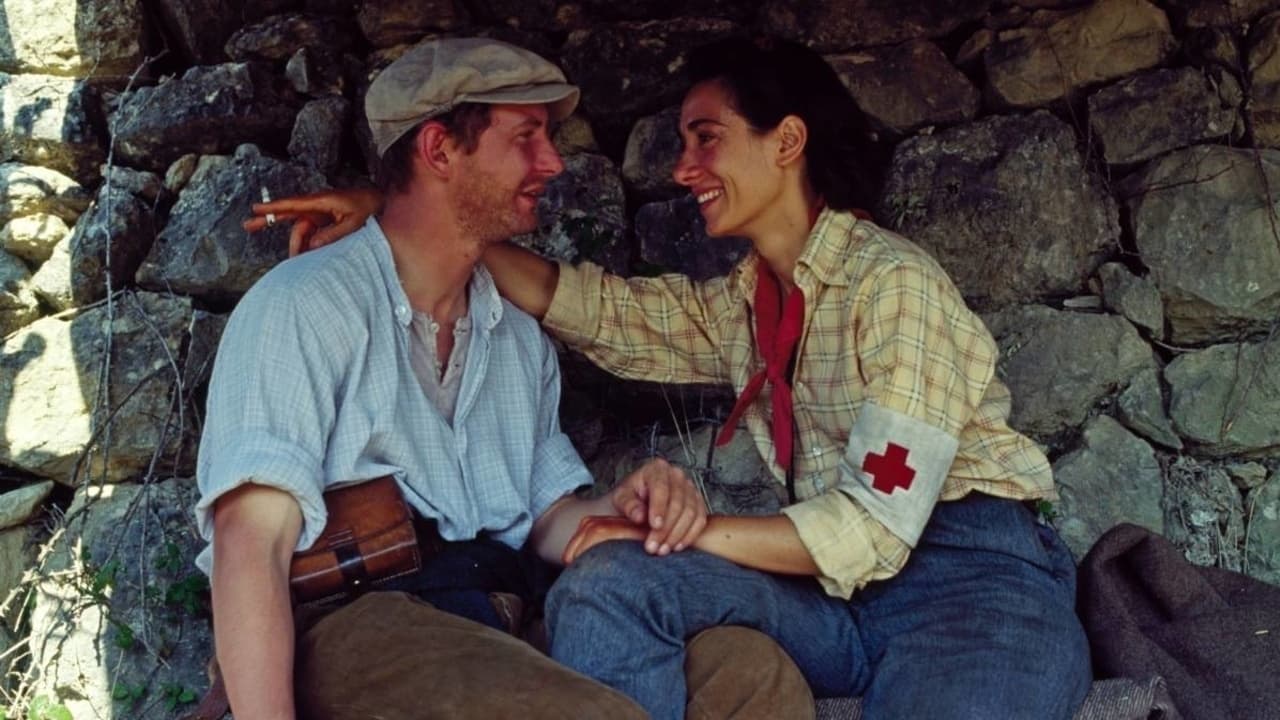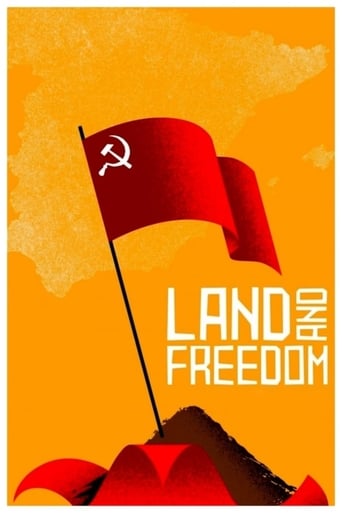

The story of a working class miner in the Uk becoming a committed part of a greater struggle in Spain. One soon realizes that the main battle is between the rich conservative fascists and those they seek to exploit. The rich own the levers of power and the land. Religion and conservatism are about maintaining control.This movie is based on Orwells Homage to Catalonia and his experiences during the Spanish Civil War. Read this book if u want an indepth view of what went on. The movie simplifies this reality. The anti fascist side was fragmented into many groups and were ultimately betrayed by Stalins agenda. An international group fought fascism but they were defeated. This is a movie about heroic commitment to an ideal. Of course we now know that Stalins Communism as a system failed. It was just a cloak for centralised totalitarian control. It was at the time seen as an alternative to capitalism and exploitive extremism. This movie fits in with the movie Grapes of Wrath. Both were during a period of chaos and depression. The speech at the end Of GOF shows a similar commitment to fight fascist police, company thugs, robber banks , exploitation and etc. I really enjoyed the story and I think KL told the story well.Its a little known episode just predating the main event of WW2. As a theory Communism is closer to pure democracy, than capitalism is, I think.This movie is hard to get in the US. Probably because it shows alternative ideas, - Communism, Anarchists, Socialists ,union groups.
... View MoreThis film is structured basically the same way as Loach's most recent work, "The Wind that Shakes the Barley": a group of people manage to successfully win a battle against an enemy regime, and then starts to faction and dissolve slowly, eventually culminating in tragedy. "Land and Freedom", however, is a bit stronger and a lot smarter.It's obvious from these two movies that Loach is a leftist, but unlike most people who make political works for one side or the other, Loach has a strong understanding of the failings and weaknesses of his own politics. His movies often have moments of straightforward political debate, but he never lets any side seem less important than any other. He is one of those rare people who can analyze all of the issues from many directions, and underline the most important parts of what each side needs and what each side can't have.Loach also has a technique of making initial moments of militarism or violence seem rather childlike, like boys with toy guns running through hillsides and enjoying each other's company. These moments always precede direct damage to members of the group, and in "Land and Freedom", seeing the militia slowly fall apart is very disturbing. Loach also cleverly illustrates the difficulties of revolution from the perspective of the volunteers, as they start fighting for one cause and then find themselves on the opposite end of the barrel against their friends and neighbors.I've only recently begun watching the movies of Ken Loach, but I really admire the way he writes and directs his movies. He is definitely a very important filmmaker.--PolarisDiB
... View Morewhich has to start from and stay with the bottom, base and column of the society.thanks to Ken Loach for this evocative movie about the Spanish civil war and its militias.don't understand the limitation that comments have to be at least 10 lines long. just wanted to make a short and avid comment.OK. then i will recommend interesting literature for those who want to know more about the militias and the anarchistic-syndicalist movement before and during the Spanish civil war:"the short summer of anarchy" by Hans Magnus Enzensberger published by Suhrkamp publishing. a German (don't know if there is an English edition of it) documentary novel about Durruti and his "Solidarios" fighting in the world for their idea of a fair society.
... View MoreIt is, perhaps, surprising that more films about the Spanish Civil War haven't been made. The Spanish landscape, the sheer ruthlessness of any civil war, and the perceived Spanish emotions all combine to make what would appear to be an attractive proposition for a film-maker. The names of Picasso and Lorca will forever have an association with the war, yet where are the artists representing cinema? All the more surprising then that it should have been British director Ken Loach who took up the cudgels. Loach is probably best known for his gritty portrayals of the British working class (and under-class), something that has, perhaps, made him more approachable outside his own country. In tackling the Spanish Civil War any writer is faced with the overwhelming complexities that underlie the events. The regionalism (think only of the Catalan and Basque regions, let alone Galicia and Andalusia), the monarchy, the Catholic Church, landowners, trade unions, anarchists plus the leaderships of the Nationalist and Republican movements all combined to create a very tangled web. Add to that outside involvement, principally from Mussolini and Stalin, the vacillation of Britain and France and, of course, the omnipresence of Hitler, and anyone might wonder where to start.Loach and Allen take their approach through the eyes of an unemployed Liverpudlian, David Carr (admirably played by Ian Hart) who, as a card-carrying member of the Communist Party, answers the call to fight for the Republic. We follow his exploits through a number of episodes, involving battles, falling in love, injury and, ultimately, a degree of disillusion as the reality of Stalin's views eventually come to dominate, and eventually destroy, his cause. The film is supremely well-made, highlighting the horrors, the camaraderie, and the political divisions. In particular, the debate amongst the militia about collectivisation after they have taken a small town takes no sides, but simply allows a number of valid arguments to be exposed within the context of the shifting sands of the war.There is still ample material for the industry to go on to make more films on this important period in history. But Loach has set the benchmark.
... View More